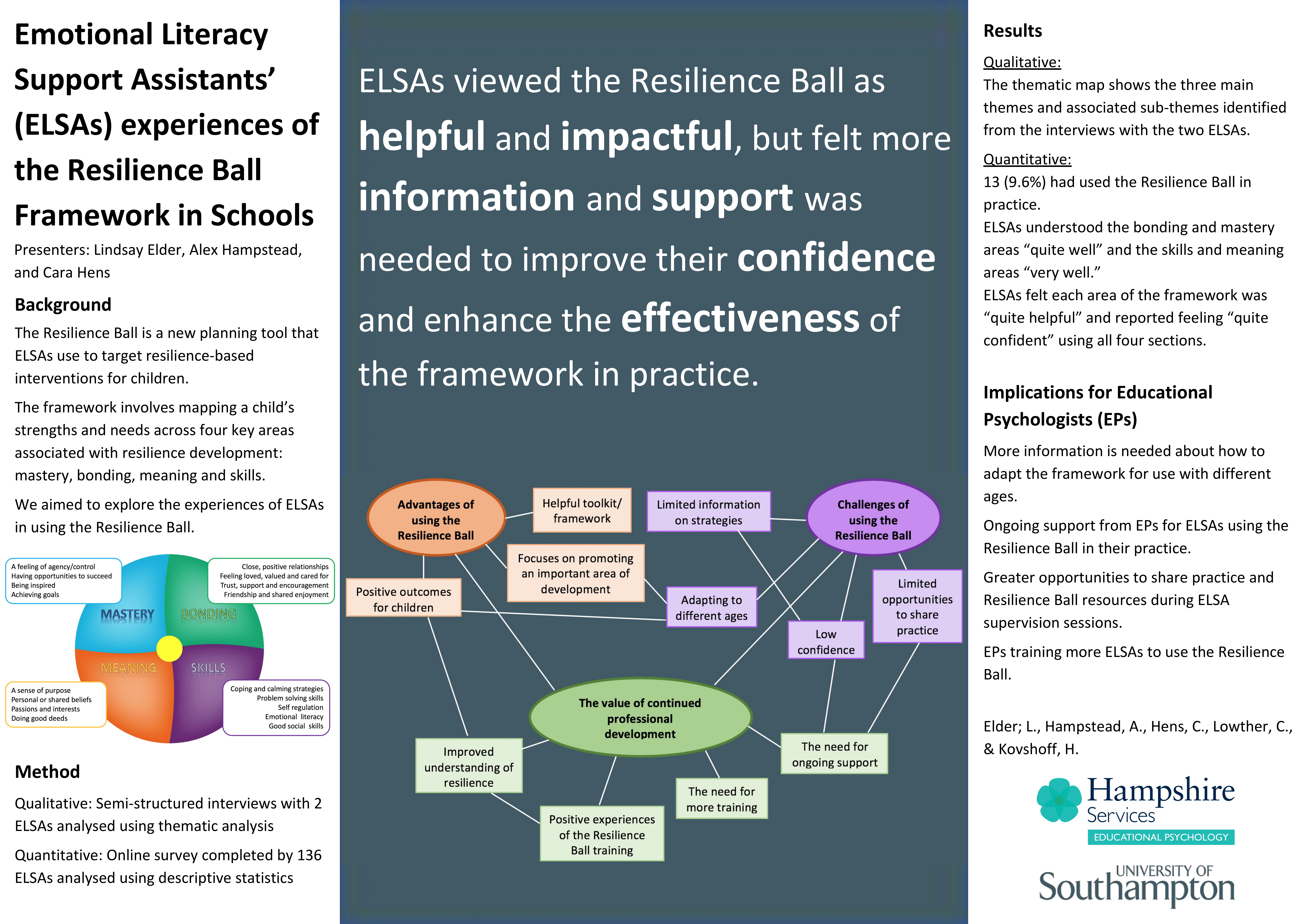The Southampton PGR conference concluded today – the ninth psychology conference but the very first to be carried out online. We were delighted by (and very proud of) the contributions of the Ed Psych Trainees to the conference, which included Year 2 research posters, Year 3 thesis presentations and two members of the Year 2 cohort – Sophie Smith and Amber Newell – sitting on the four person conference planning committee (and what an incredible job they did under these exceptional circumstances).
Please find below the Ed Psych SSRP research posters. These are:
- EBSA (Emotionally Based School Avoidance) Professionals’ Perception of Group Supervision by Lauren Baggley, Beckett Markland, Amber Newell, Cora Sargeant and Andrea Morgan.
- Emotional Literacy Support Assistants’ (ELSAs) experiences of the Resilience Ball Framework in Schools by Lindsay Elder, Alex Hampstead, Cara Hens, Cath Lowther and Hanna Kovshoff.
- Non-statutory Educational Psychology Reports: Views of Key Stakeholders by Louise Boeckmans, Husna Kasmani, Kirsty Russell, Sophie Smith, Liz Robinson, Caitriona Scully and Cora Sargeant.
- Exploring the Views and Experiences of Adolescents with ADHD in Mainstream Schools by Stephanie Lewis, Lynn de la Fosse, Derek Hanley, Tammy Valberg and Hanna Kovshoff – Awarded third prize in the conference poster competition.




